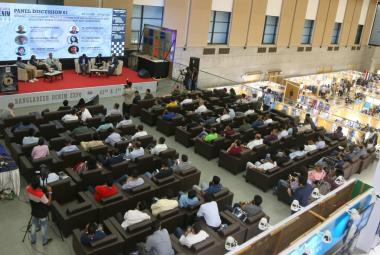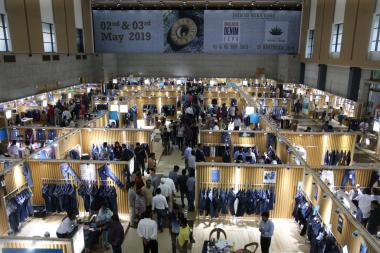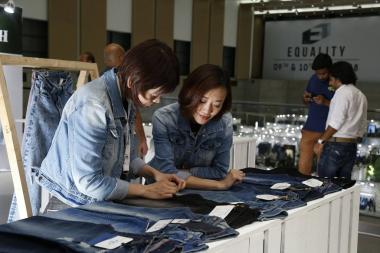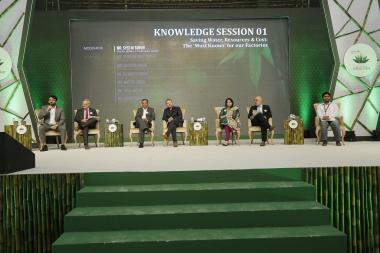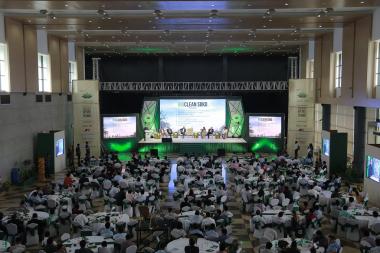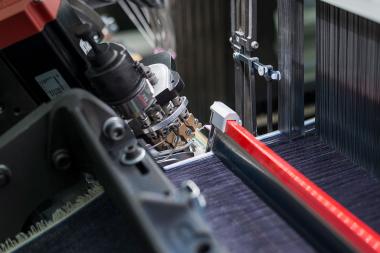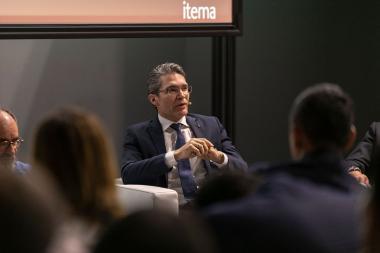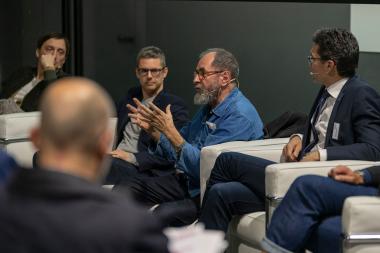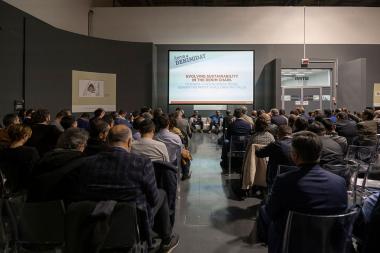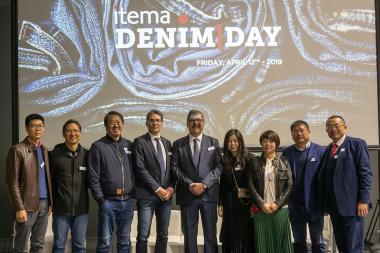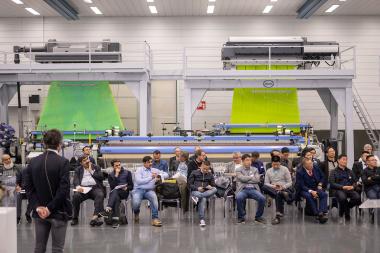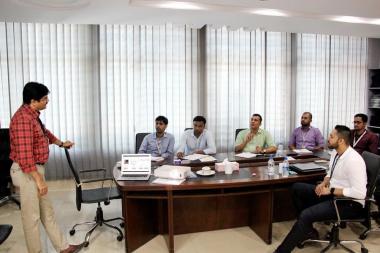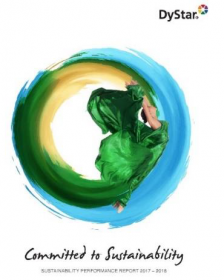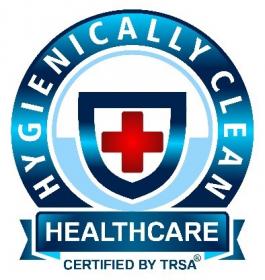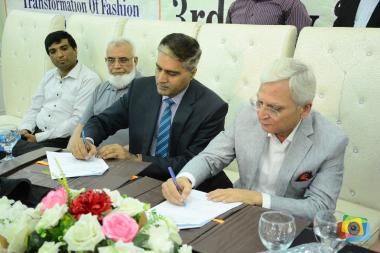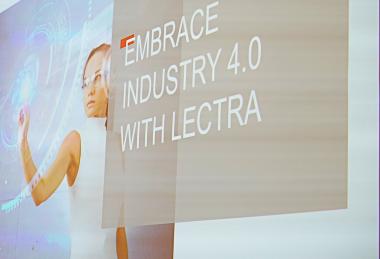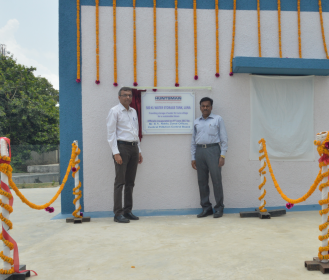Sustainability Takes Centre-stage At Leading Bangladesh Shows
- Bangladesh’s biggest denim expo takes place 5-6 November
- The show runs concurrently with the Sustainable Apparel Forum Bangladesh
- From 4-6 November, Bangladesh becomes the perfect meeting point for stakeholders in the global apparel industry
DHAKA - Responsibility is the theme of the 11th Bangladesh Denim Expo which takes place on 5th and 6th November at International Convention City in Bashundhara, Dhaka. The event, now firmly established as one of the world’s leading denim trade shows, runs alongside the Bangladesh Sustainable Apparel Forum.
Bangladesh Denim Expo
Around 100 exhibitors from 11 countries, including host Bangladesh, will participate in this year’s denim expo. Other participating countries are china, Japan, Italy, India, Singapore, Brazil, Spain, Pakistan, Turkey and Germany.
H&M Group is collaborating with Bangladesh Denim Expo for the forthcoming 11th edition of the event and a number of guest speakers will be present from the company, including Pierre Borjesson, head of sustainability, global production. Other guest speakers include Andrew Olah, the founder of Kingpins Denim show, Alice Tonello, R&D director with the Tonello Group, world renowned denim designer, Piero Turk and Jordi Juani, Asia regional director with Jeanologia.
Through a series of product displays, presentations, seminar sessions & panel discussions, the Expo will encourage healthy debate and interaction among exhibitors and visitors to champion a more responsible denim industry. One of these, of course, is sustainability and within this sits the issue of responsibility – an overriding theme of this year’s event. Denim manufacture faces huge challenges with regards its social and environmental responsibility, with production techniques having potentially far-reaching ramifications for the environment as well as people involved in the production process.
However, the industry and its supply chain are making impressive progress on these issues with Bangladesh – now the world’s largest producer of denim – leading the way in terms of addressing some of the sustainability challenges relating to denim production, including excessive use of water and chemicals. Mostafiz Uddin is the organiser of Bangladesh Denim Expo. Uddin has watched with interest the evolution of the denim industry, with each Expo marking continued and gradual progress being made by the more progressive players in the industry.
Uddin says: “The way that business and product development is conducted can have far reaching consequences on the environment, on the people that make the product and the product’s end use & life-span. “It is the duty of all stakeholders in the apparel industry to acknowledge this responsibility and to analyse our business practices, for the benefit of all.” Emphasising the theme of responsibility within Denim Expo is the fact that revenues from the expo support the running and presentation of the Sustainable Apparel Forum.
Sustainable Apparel Forum
The Sustainable Apparel Forum (SAF) is the biggest annual sustainable apparel event in Bangladesh. Bangladesh Apparel Exchange (BAE) along with Bangladesh Garment Manufacturers and Exporters Association (BGMEA) as co-organiser will jointly carry out the 2nd edition of the SAF on 5th Nov 2019.
This is the second edition of the Sustainable Apparel Forum, with the first-ever forum held in 2017 in Dhaka. The objective of this year’s forum is accelerating the momentum of sustainability in Bangladesh apparel industry.
The forum will see more than 50 speakers gathered from Bangladesh and overseas sharing expert opinions across five panel discussions covering current issues in the country’s apparel industry. These include human resources, transparency in business, water conservation, purchasing practices, sustainable chemical management, waste management, circular economy in textiles and climate change to name a few.
Additionally, the conference will host several knowledge building technical presentations from renowned organisations which will cover different issues relating to sustainability, including waste management, protection of the environment and better working conditions.
Speakers at the show include Md. Shahriar Alam, MP, Honourable State Minister, Ministry of Foreign Affairs, Bangladesh, H. E. Benoit Préfonatine High Commissioner, High Commission of Canada, Bangladesh, and Dr. Rubana Huq President, Bangladesh Garment Manufacturers’ and Exporters’ Association, Sheikh Fazle Fahim, President, Federation of Bangladesh Chamber of Commerce & Industries, Pierre Börjesson, Head of Sustainability – Global Production, H&M Group, Tuomo Poutiainen, Country Director, International Labor Organization, Peter McCallister, Executive Director, Ethical Trading Initiative and H.E. Winnie Estrup Petersen Ambassador, Embassy of Denmark, Bangladesh.
Prior to this year’s conference, the Embassy of the Kingdom of the Netherlands in Bangladesh and the Sweden Embassy in Bangladesh will also co-host two roundtable discussion in collaboration with BAE and in association with BGMEA on 4 November, 2019, while H&M, Better Work Bangladesh and C&A Foundation are partners in the event.
The conference will be followed by showcasing different innovative, sustainable & best work practices in RMG manufacturing factories in Bangladesh. Following the discussions, a series of recommendations will be made, and a Sustainability Roadmap for the Bangladesh apparel industry will be formulated.
This year’s SAF promises to be the biggest yet. Added by Mr Mostafiz Uddin in the recent press briefing for the event: “The title for this year’s Sustainable Apparel Forum is enabling sustainability through policy and leadership. The time for talking on sustainability issues is over. It is now time for actions. That’s why the focus of this year’s show is on practical, pragmatic actions the textile industry can adopt to improve its environmental footprint.”


